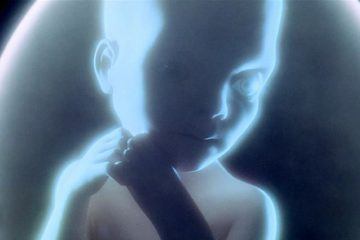Justin E. H. Smith in his Substack newsletter, The Hinternet:
 With the US Supreme Court’s recent decision to overturn Roe v. Wade, the decades-long dialogue des sourds concerning the moral status of foetuses has attained new heights of futility. Some who regret the decision have adapted the “trust the science” piety lately honed in an epidemiological context to return to what they take to be a settled embryological fact: that there is no good scientific basis for the presumption that an early-term foetus is a suitable candidate for moral personhood, since its level of neurophysiological development is insufficient to warrant any attribution to it of a capacity to feel pain. This presupposes however that personhood is won by candidates for it through an investigation of their physical constitution, and that it can be directly “read off of” the arrangement of their parts and the capacities known to depend on that arrangement.
With the US Supreme Court’s recent decision to overturn Roe v. Wade, the decades-long dialogue des sourds concerning the moral status of foetuses has attained new heights of futility. Some who regret the decision have adapted the “trust the science” piety lately honed in an epidemiological context to return to what they take to be a settled embryological fact: that there is no good scientific basis for the presumption that an early-term foetus is a suitable candidate for moral personhood, since its level of neurophysiological development is insufficient to warrant any attribution to it of a capacity to feel pain. This presupposes however that personhood is won by candidates for it through an investigation of their physical constitution, and that it can be directly “read off of” the arrangement of their parts and the capacities known to depend on that arrangement.
In some cases, indeed, personhood is attained in just this way — for example, the legal recognition of great apes as persons in some jurisdictions, in view of the scientific consensus that, given their neurological complexity, there must be something of moral interest going on behind a gorilla’s eyes. But in actual fact this is only one way to go about establishing personhood.
More here.
